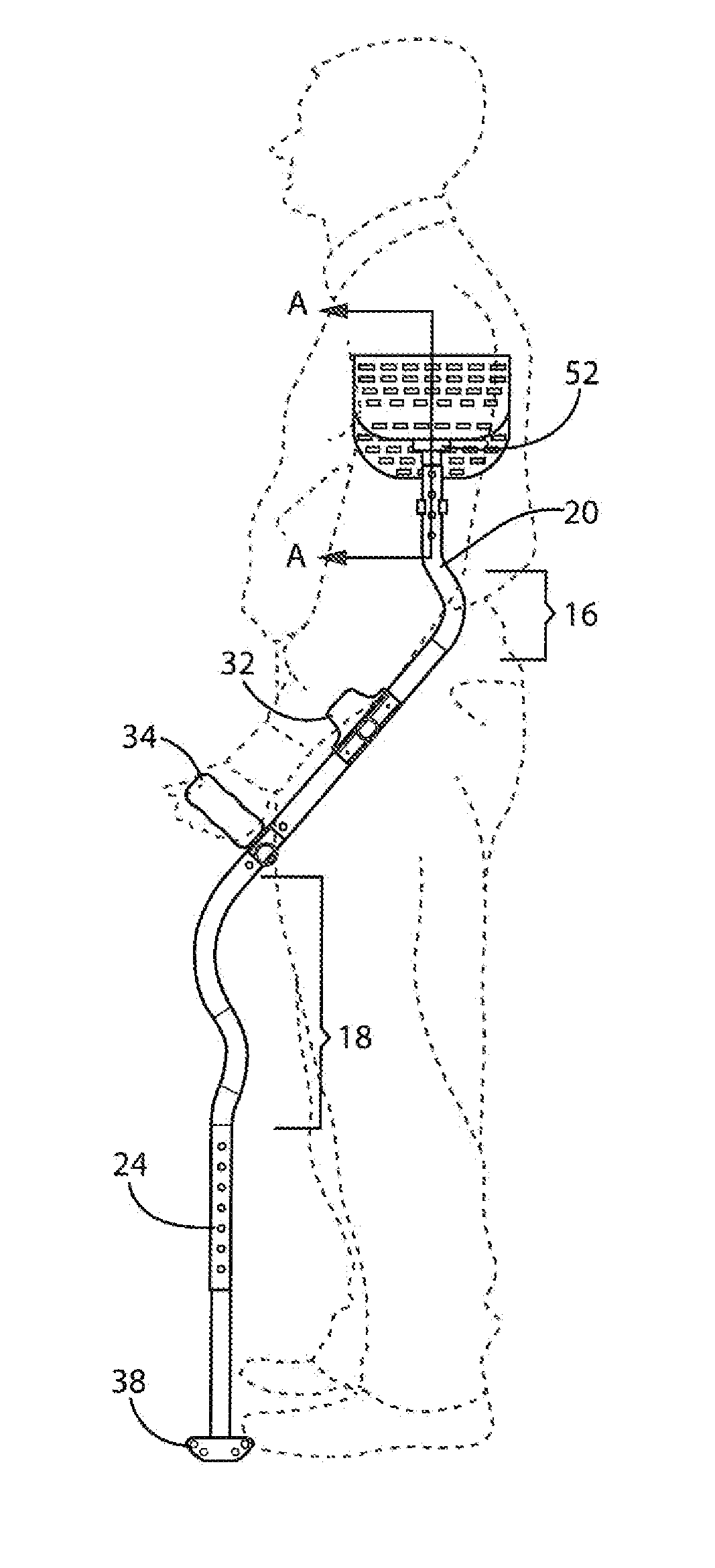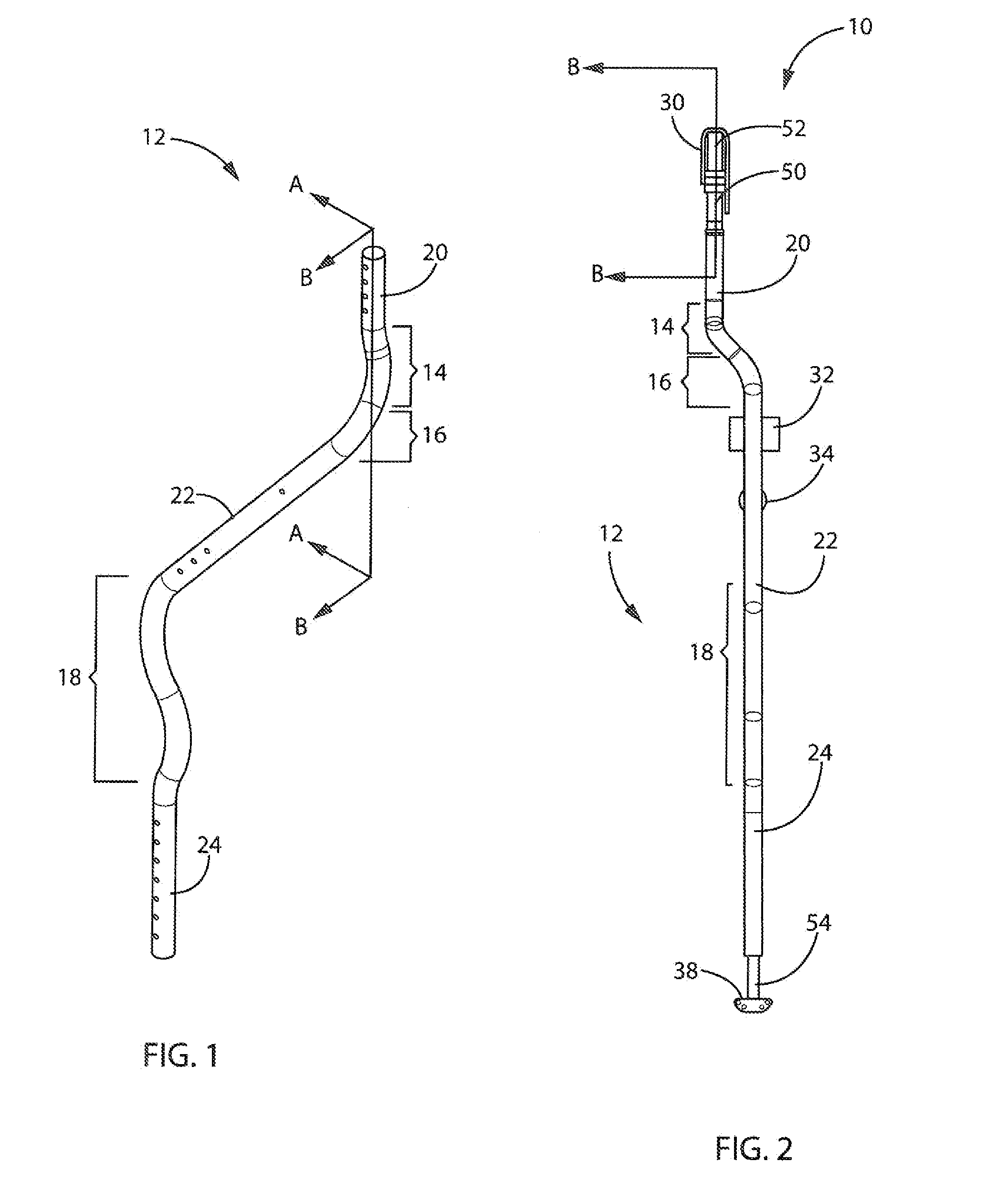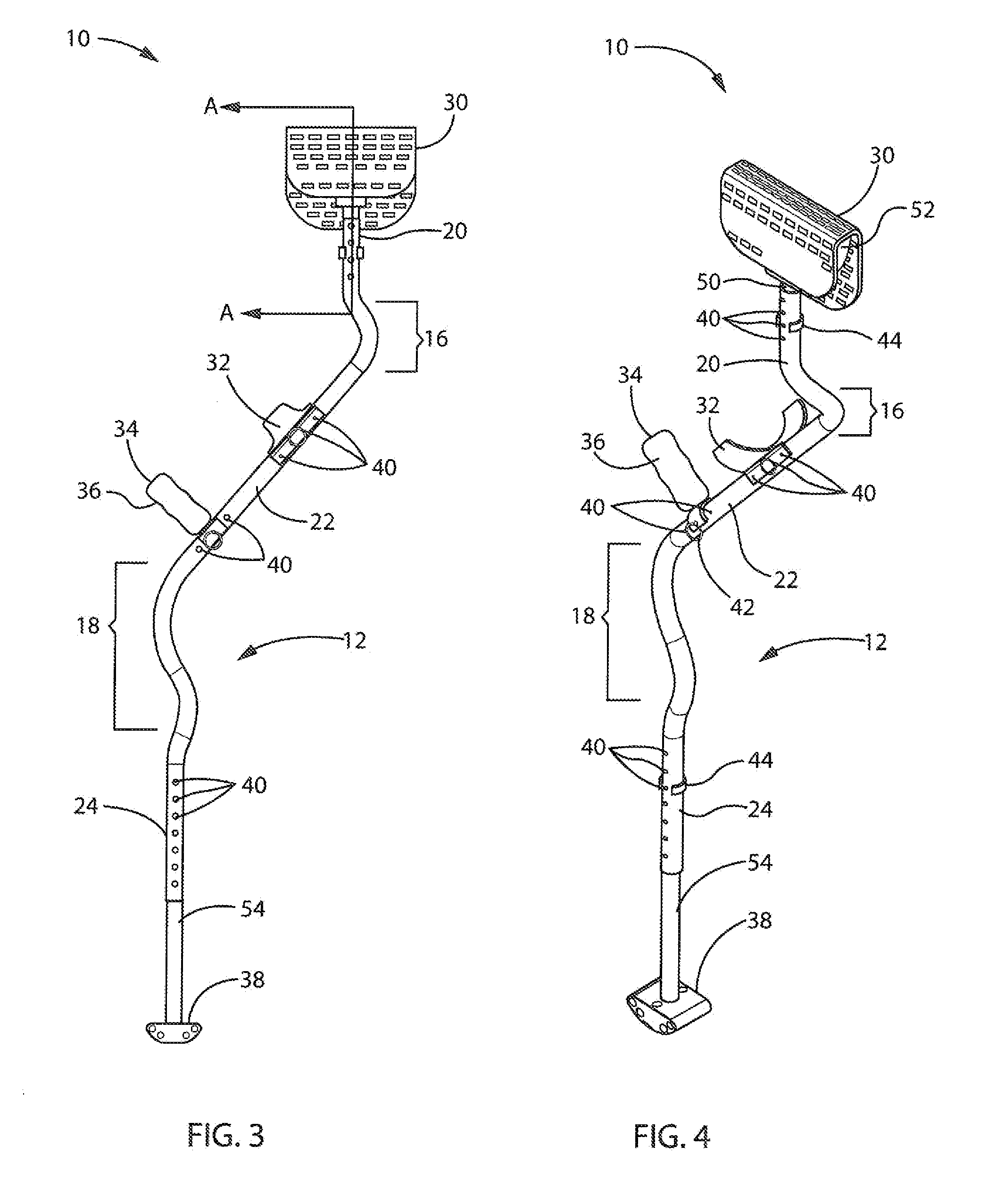Ergonomic crutch
a technology of ergonomic crutches and crutches, which is applied in the field of medical crutches, can solve the problems of exacerbating pre-existing injuries or conditions, affecting the overall walking efficiency and aesthetic appeal of patients, and the discomfort of using equipment, so as to aesthetic appeal, and improve the overall walking efficiency. , the effect of improving the stride length and shock absorption
- Summary
- Abstract
- Description
- Claims
- Application Information
AI Technical Summary
Benefits of technology
Problems solved by technology
Method used
Image
Examples
Embodiment Construction
[0035]Referring now to FIG. 1, a medical crutch 10 is comprised of a crutch backbone 12 that may be constructed of a light yet rigid material, for example, fiberglass reinforced plastic, carbon fiber, or aluminum. The backbone 12 is shaped to provide an outward jog 14, a forward jog 16, and a S-bend 18 to aid absorption of the energy transferred by the user. The bends are bounded by three generally straight portions in the backbone 12: an upper section 20, a middle section 22, and a lower section 24, which also provide attachment means for the various support structures of the medical crutch 10.
[0036]As seen in FIGS. 1 and 4, the backbone 12 is first defined by an upper section 20 that is generally straight and contains receiving holes 40 for a pinned c-dip 44. The top of the upper section slidably receives an underarm support pole 50 attached to an underarm frame 52 to be fitted underneath the user's arm during use. The underarm support pole 50 and underarm frame 52 will be describ...
PUM
 Login to View More
Login to View More Abstract
Description
Claims
Application Information
 Login to View More
Login to View More - R&D
- Intellectual Property
- Life Sciences
- Materials
- Tech Scout
- Unparalleled Data Quality
- Higher Quality Content
- 60% Fewer Hallucinations
Browse by: Latest US Patents, China's latest patents, Technical Efficacy Thesaurus, Application Domain, Technology Topic, Popular Technical Reports.
© 2025 PatSnap. All rights reserved.Legal|Privacy policy|Modern Slavery Act Transparency Statement|Sitemap|About US| Contact US: help@patsnap.com



